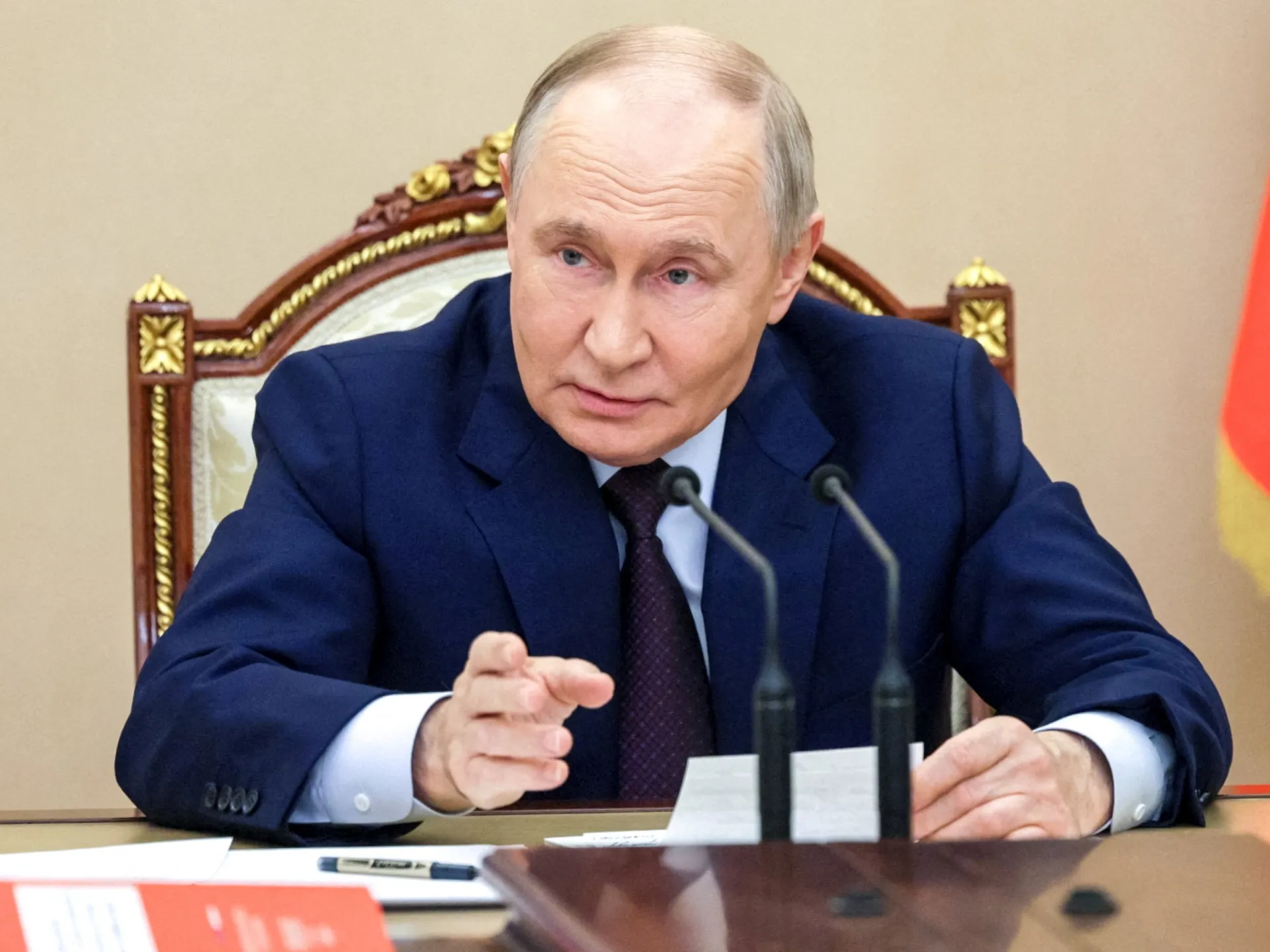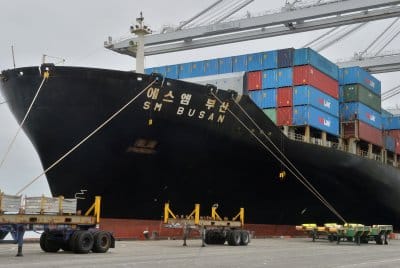Putin says Russia to take ‘reciprocal measures’ if US resumes nuclear tests | Nuclear Weapons News
Russian President Vladimir Putin has told top Kremlin officials to draft proposals for the possible resumption of nuclear weapons testing, as Moscow responds to President Donald Trump’s order that the United States “immediately” resume its own testing after a decades-long hiatus.
The Russian leader told his Security Council on Wednesday that should the US or any signatory to the Comprehensive Nuclear-Test-Ban Treaty (CTBT) conduct nuclear weapons tests, “Russia would be under obligation to take reciprocal measures”, according to a transcript of the meeting published by the Kremlin.
Recommended Stories
list of 3 itemsend of list
“In this regard, I instruct the Foreign Ministry, the Defence Ministry, the special services, and the corresponding civilian agencies to do everything possible to gather additional information on this matter, have it analysed by the Security Council, and submit coordinated proposals on the possible first steps focusing on preparations for nuclear weapons tests,” Putin said.
Moscow has not carried out nuclear weapons tests since the collapse of the Soviet Union in 1991. But tensions between the two countries with the world’s largest nuclear arsenals have spiked in recent weeks as Trump’s frustration with Putin grows over Russia’s failure to end its war in Ukraine.
The US leader cancelled a planned summit with Putin in Hungary in October, before imposing sanctions on two major Russian oil firms a day later – the first such measures since Trump returned to the White House in January.
Trump then said on October 30 that he had ordered the Department of Defense to “immediately” resume nuclear weapons testing on an “equal basis” with other nuclear-armed powers.
Trump’s decision came days after he criticised Moscow for testing its new Burevestnik missile, which is nuclear-powered and designed to carry a nuclear warhead.
According to the Kremlin transcript, Putin spoke with several senior officials in what appeared to be a semi-choreographed advisory session.
Defence Minister Andrei Belousov told Putin that Washington’s recent actions significantly raise “the level of military threat to Russia”, as he said that it was “imperative to maintain our nuclear forces at a level of readiness sufficient to inflict unacceptable damage”.
Belousov added that Russia’s Arctic testing site at Novaya Zemlya could host nuclear tests at short notice.
Valery Gerasimov, the Chief of the General Staff of the Russian Armed Forces, also cautioned that if Russia does not “take appropriate measures now, time and opportunities for a timely response to the actions of the United States will be lost”.
Following the meeting, state news agency TASS quoted Kremlin spokesman Dmitry Peskov as saying that Putin had set no specific deadline for officials to draft the requested proposals.
“In order to come to a conclusion about the advisability of beginning preparations for such tests, it will take exactly as much time as it takes for us to fully understand the intentions of the United States of America,” Peskov said.
Russia and the US are by far the biggest nuclear powers globally in terms of the number of warheads they possess.
The Center for Arms Control and Non-Proliferation (CACNP) estimates that Moscow currently has 5,459 nuclear warheads, of which 1,600 are actively deployed.
The US has about 5,550 nuclear warheads, according to the CACNP, with about 3,800 of those active. At its peak in the mid-1960s during the Cold War, the US stockpile consisted of more than 31,000 active and inactive nuclear warheads.
China currently lags far behind, but has rapidly expanded its nuclear warhead stockpile to about 600 in recent years, adding about 100 per year since 2023, according to the Stockholm International Peace Research Institute.
France, Britain, India, Pakistan, Israel and North Korea comprise the remaining nuclear-armed countries.
The US last exploded a nuclear device in 1992, after former Republican President George HW Bush issued a moratorium on nuclear weapons testing following the collapse of the Soviet Union a year earlier.
Since 1996, the year the CTBT was opened for signatures, only three countries have detonated nuclear devices.
India and Pakistan conducted tests in 1998. North Korea has carried out five explosive tests since 2006 – most recently in 2017 – making it the only country to do so in the 21st century.
Such blasts, regularly staged by nuclear powers during the Cold War, have devastating environmental consequences.
Trump has yet to clarify whether the resumption he ordered last week refers to nuclear-explosive testing or to flight testing of nuclear-capable missiles, which would see the National Nuclear Safety Administration test delivery systems without requiring explosions.
Security analysts say a resumption of nuclear-explosive testing by any of the world’s nuclear powers would be destabilising, as it would likely trigger a similar response by the others.
Andrey Baklitskiy, senior researcher at the United Nations Institute for Disarmament Research, said that the Kremlin’s response was a prime example of the “action-reaction cycle”, in which a new nuclear arms race could be triggered.
“No one needs this, but we might get there regardless,” he posted on X.
Russian MOD Belousov suggests Russia should start to prepare for a full-scale nuclear test in response to the US statements. Action-reaction cycle at its best. No one needs this, but we might get there regardless
— Andrey Baklitskiy (@baklitskiy) November 5, 2025


